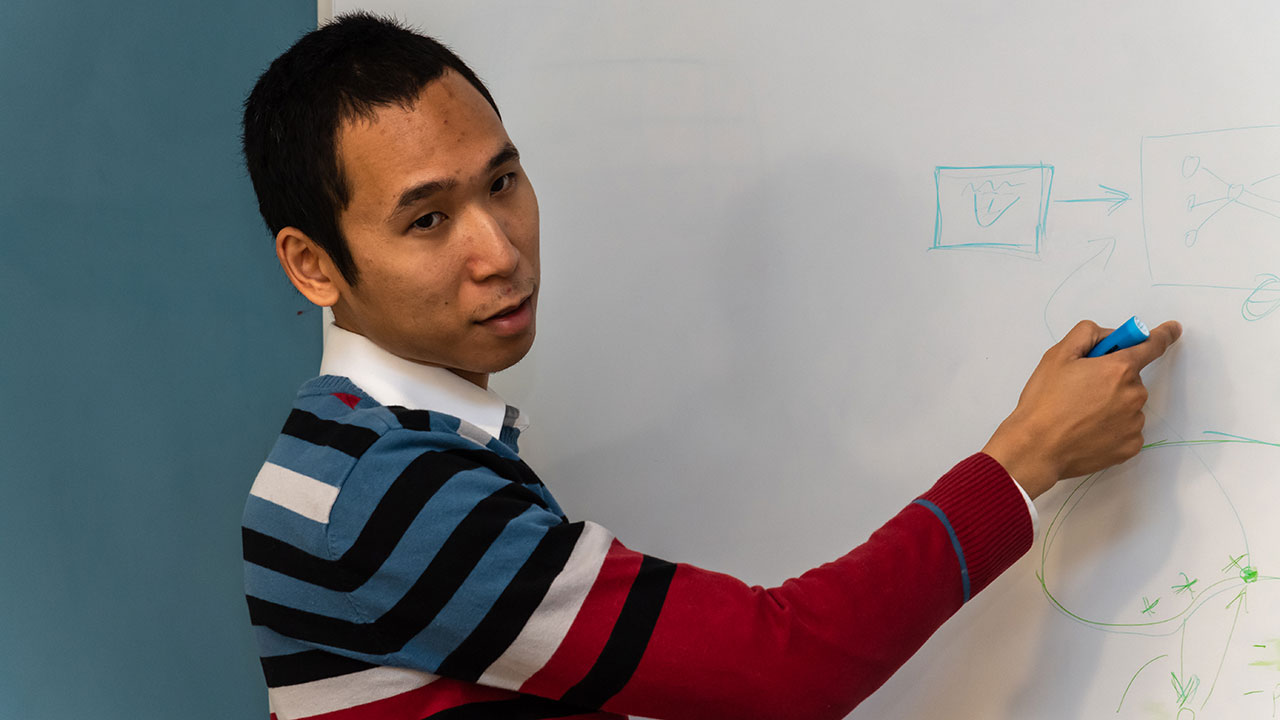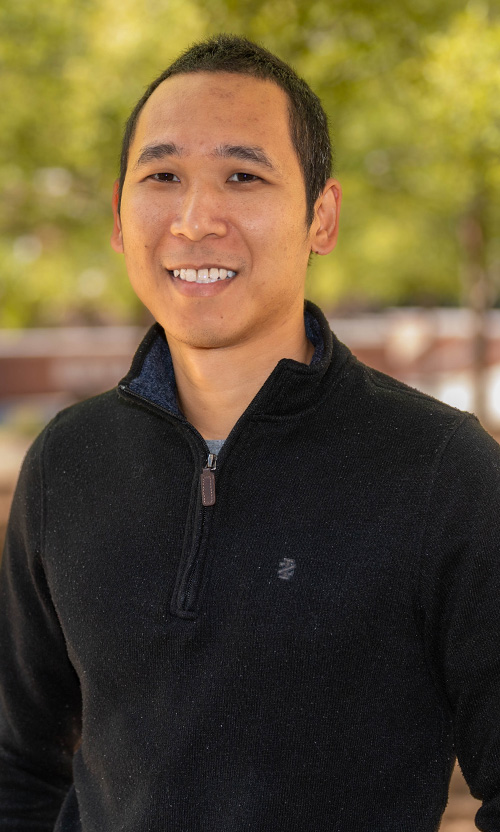AI research leads CSSE assistant professor to NSF CAREER Award
Published: Mar 30, 2022 10:15 AM
By Joe McAdory
Anh Nguyen is dedicated to improving artificial intelligence (AI) functionality for the betterment of mankind.
Even more, he’s determined to create the first K-6 artificial intelligence club in Alabama, explore creative ways to implement AI research into a new course at Auburn University, collaborate with industry partners, and educate external audiences by publishing reproducible code, public-oriented videos.
For his efforts, the assistant professor in computer science and software engineering was presented with a Faculty Early Development CAREER Award by the National Science Foundation (NSF). The CAREER Award is the NSF’s most prestigious award in support of junior faculty who exemplify the role of teacher-scholars through outstanding research, excellent education, and the integration of education and research within the context of the mission of their organizations. The CAREER Award was the college’s second in three months. Vrishank Raghav, an assistant professor in aerospace engineering, received the award in December.
Nguyen’s five-year project, “Harnessing external knowledge to improve computer vision robustness, explainability, and user accuracy,” was awarded $460,736 by the NSF.
“I am very excited to win the NSF CAREER Award as it enables greater research opportunities in building artificial intelligence systems that are more intelligent and able to explain their decisions,” said Nguyen, who has served in his capacity at Auburn since Fall 2017. “In addition to the research component, I am very excited about the funded educational activity where we will have the chance to create the first K-6 club for children to learn more about artificial intelligence.”
CSSE department chair Hari Narayanan was thrilled for Nguyen and for the further research opportunities NSF funding brings.
“Dr. Nguyen has been conducting groundbreaking research on explainability and robustness of computer vision systems based on deep learning ever since he arrived at the Department of Computer Science and Software Engineering, showing, among other things, that such vision systems can fail with potentially dangerous consequences,” he said.
“To be recognized by the NSF with this prestigious award to continue this research establishes him as one of the premier thought leaders in this area, and enhances the prestige of the university, the college, and the department as a leader in artificial intelligence.”
Though AI is transforming disciplines from transportation to policing to healthcare, AI-based systems often make mistakes when facing scenarios that they have never seen before (edge cases). Nguyen noted the future of AI include autonomous vehicles, doctors/surgeons, and even helping authorities identify criminals.
They’re not foolproof, and that’s a problem. Poor decision-making can have disastrous consequences.
“How can we build AI that maximizes accuracy?” Nguyen asked. “Humans are able to deliberately, iteratively, and critically think. Machines are not. We sort through facts, then determine the best course of action. What if we made a paradigm shift to the AI so it can iteratively, slowly and deliberately think – searching for supporting facts from a knowledge base, and put them together to make the correct decision in edge cases?”
Where do many humans look for quick, text-laden knowledge? Wikipedia and Google. The same can be applied to AI.
Nguyen said he and his researchers will utilize large text and image datasets as an external source of information for image classifiers to leverage and make better decisions.
“Also, we want to design AI systems that users can better understand,” Nguyen said. “What’s its thought process? Why did it come to this conclusion? Then, we can better debug, assess them, and improve them in human-in-the-loop applications. We want to learn how they came to these conclusions and work with them.”
Other recent Auburn Engineering NSF CAREER Award recipients include Jack Montgomery (civil and environmental engineering), Debswapna Bhattacharya (computer science and software engineering), Lauren Beckingham (civil and environmental engineering), Majid Beidaghi (materials engineering), Pengyu Chen (materials engineering), and David Roeuche (civil and environmental engineering).
Media Contact: , jem0040@auburn.edu, 334.844.3447
Anh Nguyen's five-year project is titled, "Harnessing external knowledge to improve computer vision robustness, explainability, and user accuracy."


